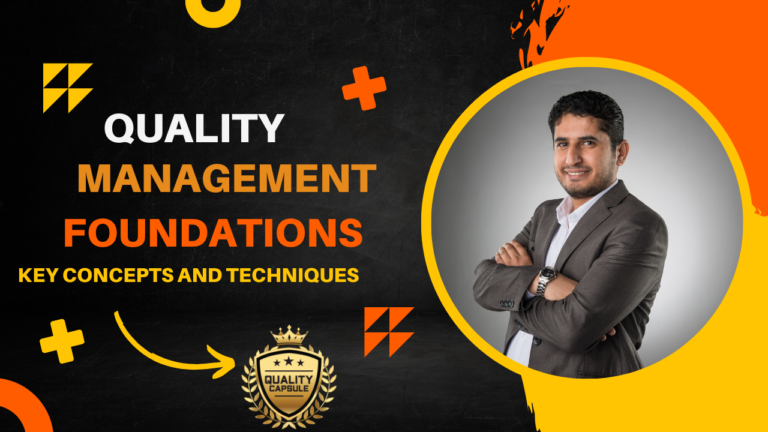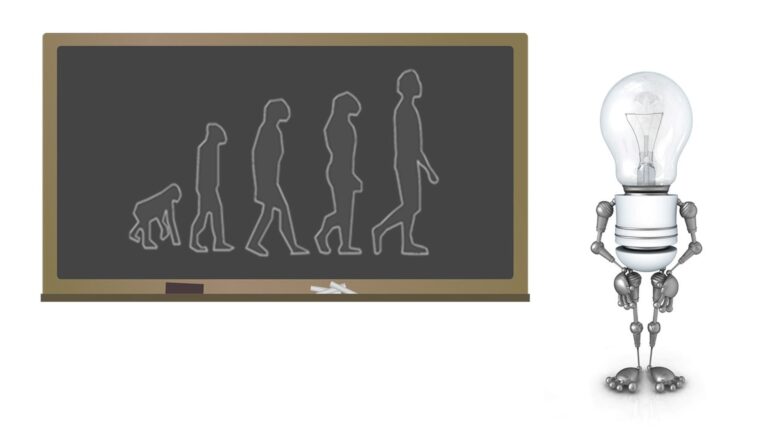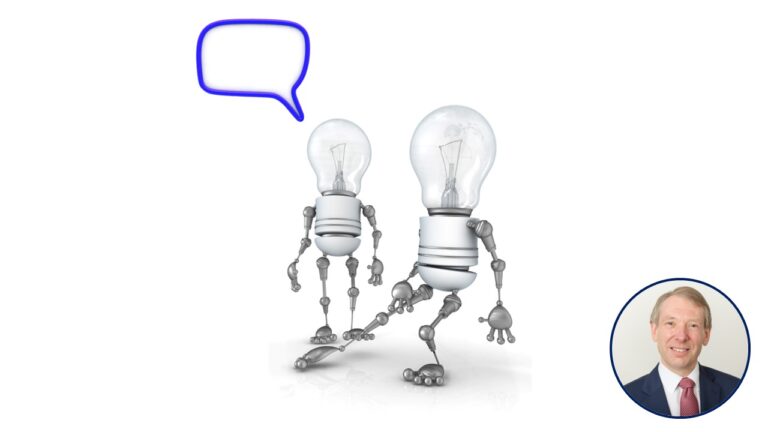Tackling Tough Conversations with Emotional Intelligence
What are effective strategies for resolving a conflict or disagreement?
How do you prepare for a difficult conversation that is going to be challenging and tough?
How can you have a constructive debate around contentious issues?
How can you maintain a respectful and productive dialogue when emotions are running high?
What are the best ways to express your opinion and influence others without coming across as aggressive?
How can you maintain a positive attitude when addressing a difficult topic?
The need for a tough conversations can happen at any time, from the driver who cuts you up on the road this morning to the employee whose negative performance appraisal is coming up, from the neighbour who cut the branch off your prized tree to the member of staff who always has something to complain about.
These situations happen frequently, but dealing with them is something that leaves most of us cold at the prospect.
Ask most people how they feel about tackling tough conversations, and at least 90 % of them will feel intensely uncomfortable, recalling a previous time when they had to deal with one. They will experience the emotional state again as if it was happening right now.
Hostage negotiators and people who do deals for large corporations have months, if not years of training, learning how to deal with the emotions that people might try to provoke in them and instead remain calm. They are able to objectively see the facts and use their emotional intelligence to manage the conversation appropriately.
The rest of us, well, we need to learn a thing or two about ourselves and try to understand why we respond the way that we do.
Leaders and managers have to tackle tough conversations and have constructive debates on a regular basis in the workplace. These are required in a variety of circumstances.
These include, but are not limited to,
- Poor performance
- Unprofessional behaviour
- Conflict between employees
- Harassment
- Inappropriate use of Social Media
- Unethical practices
- Unreasonable work demands
- Unauthorised use of company resources
- Unauthorised disclosure of confidential information
- Unsafe work practices
Tough, difficult conversations can be challenging and complex for anyone. Avoiding constructive debates and challenging discussions can make situations worse and tackling them without thought, clear goals and effective communication strategies can cause further issue by eroding trust and damaging relationships.
To build your confidence you need to understand how to work with your emotional intelligence. Emotional intelligence underpins your skills to communicate with different types of people in multiple situations. Your emotional intelligence enables you have to know when and how to communicate using the emotional climate positively to make appropriate decisions and build relationships!
Using your emotional intelligence effectively in managing tough, difficult conversations and constructive debates will improve your well-being, earn you trust and respect from those you work with, improve your relationships and improve the overall atmosphere and productivity of your organisation.
If you want to effectively communicate with your co-workers, employees, boss, family and friends, then this is course for you! Tackling Tough Conversations with Emotional Intelligence introduces you to the key tools and insights to effectively communicate in order to use your emotional intelligence to build stronger relationships and better outcomes!
In this course you’ll learn how to prepare for tough, challenging conversations and constructive debates, how to use various channels of communication channels, how to recognise which channel is appropriate for different social interaction styles, the power of influence and persuasion using language patterns and unconscious language, and much more!
You’ll learn how to do all this in ways that are both informative and engaging!
By completing this course, you’ll be able to:
- Discover how emotional intelligence is used when tackling tough, difficult conversations to build emotional bonds
- Identify and analyse the different approaches to tackling tough conversations in the workplace
- Develop strategies for initiating, managing, and resolving challenging conversations using emotional intelligence
- Assess approaches for typical situations that require you to influence and communicate with different types of people
- Distinguish the transactions between ego states and life positions defining how they influence behaviour
- Recognise how to interact with different behavioural styles to manage stress reactions and build effective relationships
- Create effective responses to challenging behaviours at work
- Evaluate language patterns to influence and persuade through empathetic communication
- Construct a plan to approach and manage difficult conversations
Course Curriculum
1. Introduction to the Course
-
1. Tackling Tough Conversations Course Introduction
01:50 -
2. Tackling Tough Conversations – Learning Outcomes
04:19 -
3. Tips to Develop your Emotional Intelligence
04:38
2. Tough Conversations in the Workplace
-
1. When a Tough Conversation is Needed
02:32 -
2. The Challenge of Unchallenged Behaviour
00:41 -
3. Emotional Responses Influencing Tough Conversations
02:36 -
4. How Assumptions can Lead to Issues
03:15 -
5. Working with our Assumptions and Judgments
03:03 -
6. Assumptive Behaviours and Communication
01:28 -
7. How to use your Behavioural Flexibility
02:54 -
8. Behavioural Agility
02:53
3. Emotionally Intelligence Practices around Tough, Difficult Conversations
-
1. Preparing for the Conversation in an Adult Fashion
05:30 -
2. The Importance of Rapport in Communication
04:11 -
3. Dialogue versus Debate
03:11 -
4. The Levels of Listening
04:16 -
5. Empathetic Active Listening
08:15 -
6. Issues around Listening
03:57 -
7. Managing Fight and Flight Behaviour
04:50 -
8. Assertiveness, Emotional Intelligence and Tough Conversations
01:19 -
9. Rights and Responsibilities
04:01 -
10. The Rules of Assertiveness
00:00
4. Breaking Bad News
-
1. The Good News about Breaking Bad News
02:12 -
2. Face the Facts
03:20 -
3. Working with Emotions and Identity
03:14 -
4. The Stages of Delivering Bad News
05:03 -
5. Bad News – Tough Reactions
05:35
5. Supporting Conversations with Language Patterns
-
1. Introducing Language Patterns
01:29 -
2. Language Patterns – Ambiguous Language
03:25 -
3. Language Patterns – Influencial Language
04:48 -
4. Language Patterns – Rules and Power Words
02:48 -
5. Language Patterns – Unconscious Language
01:48
6. Exploring Behavioural Styles
-
1. Introducing Social Interaction Styles
05:12 -
2. Assessing your Social Interaction Style
00:00 -
3. The Driver Social Interaction Style
03:12 -
4. Booklet – The Driver Social Interaction Style
00:00 -
5. The Expressive Social Interaction Style
03:31 -
6. Booklet – The Expressive Social Interaction Style
00:00 -
7. The Amiable Social Interaction Style
03:30 -
8. Booklet – The Amiable Social Interaction Style
00:00 -
9. The Analytical Social Interaction Style
03:35 -
10. Booklet – The Analytical Social Interaction Style
00:00 -
11. Tension Between the Styles
02:09 -
12. How the Styles React to Pressure
01:43 -
13. The Driver Social Interaction Style Conflict Responses
01:34 -
14. The Expressive Social Interaction Conflict Reponses
01:56 -
15. The Amiable Social Interaction Style Conflict Response
01:19 -
16. The Analytical Social Interaction Style Conflict Responses
01:42 -
17. Ideal Behaviours for Ideal Interactions
01:50
7. Transactional Analysis as a Basis for Understanding Human Interactions
-
1. The Transactional Analysis Questionnaire
00:00 -
2. Introducing Transactional Analysis
08:26 -
3. Investigating Transactions
07:30 -
4. Further Considerations about Transactional Analysis
01:58 -
5. Ten Tips for Maintaining Adult to Adult Transactions
03:21 -
6. Understanding Communication with Transactional Analysis
00:00 -
7. Working with Ego States
00:00 -
8. Investigating Strokes
05:43 -
9. Stroke Filters
04:24 -
10. Analysing your Stroking Profile
00:00 -
11. Life Positions – Feeling Okay
08:56 -
12. Combining Transactional Analysis with Social Interactions Styles
03:00
8. Conclusion to the Course
-
1. Tackling Tough, Difficult Conversations
00:00 -
2. Dos and Donts with Tough Conversations
03:19 -
3. Key Takeaways
01:44
-
LevelAll Levels
-
Total Enrolled1
-
Duration3 hours
-
Enrollment validityEnrollment validity: 3 days
-
CertificateCertificate of completion

What I will learn?
- Discover how emotional intelligence is used when tackling tough, difficult conversations to build emotional bonds.
- Identify and analyse the different approaches to tackling tough conversations in the workplace.
- Develop strategies for initiating, managing, and resolving to challenging conversations using emotional intelligence.
- Assess approaches for typical situations that require you to influence and communicate with different types of people.
- Distinguish the transactions between ego states and life positions defining how they influence behaviour.
- Recognise how to interact with different behavioural styles to manage stress reactions and build effective relationships.
- Create effective responses to challenging behaviours at work.
- Evaluate language patterns to influence and persuade through empathetic communication.
- Construct a plan to approach and manage difficult conversations.
Target Audience
- This course will support the development of your emotional intelligence. It will be of interest to you if you are looking to develop an understanding of how to manage tough challenging conversations, the issues involved and ways to approach these confidently.
- This course will assist anyone who is regularly involved with challenging, difficult discussions and conversations.
- This course will help anyone who feels uncomfortable discussing issues with another person.
- This course will be perfect for you if you have a fear of conflict and would like to become more comfortable with managing intense disagreements.
Tackling Tough Conversations with Emotional Intelligence
What are effective strategies for resolving a conflict or disagreement?
How do you prepare for a difficult conversation that is going to be challenging and tough?
How can you have a constructive debate around contentious issues?
How can you maintain a respectful and productive dialogue when emotions are running high?
What are the best ways to express your opinion and influence others without coming across as aggressive?
How can you maintain a positive attitude when addressing a difficult topic?
The need for a tough conversations can happen at any time, from the driver who cuts you up on the road this morning to the employee whose negative performance appraisal is coming up, from the neighbour who cut the branch off your prized tree to the member of staff who always has something to complain about.
These situations happen frequently, but dealing with them is something that leaves most of us cold at the prospect.
Ask most people how they feel about tackling tough conversations, and at least 90 % of them will feel intensely uncomfortable, recalling a previous time when they had to deal with one. They will experience the emotional state again as if it was happening right now.
Hostage negotiators and people who do deals for large corporations have months, if not years of training, learning how to deal with the emotions that people might try to provoke in them and instead remain calm. They are able to objectively see the facts and use their emotional intelligence to manage the conversation appropriately.
The rest of us, well, we need to learn a thing or two about ourselves and try to understand why we respond the way that we do.
Leaders and managers have to tackle tough conversations and have constructive debates on a regular basis in the workplace. These are required in a variety of circumstances.
These include, but are not limited to,
- Poor performance
- Unprofessional behaviour
- Conflict between employees
- Harassment
- Inappropriate use of Social Media
- Unethical practices
- Unreasonable work demands
- Unauthorised use of company resources
- Unauthorised disclosure of confidential information
- Unsafe work practices
Tough, difficult conversations can be challenging and complex for anyone. Avoiding constructive debates and challenging discussions can make situations worse and tackling them without thought, clear goals and effective communication strategies can cause further issue by eroding trust and damaging relationships.
To build your confidence you need to understand how to work with your emotional intelligence. Emotional intelligence underpins your skills to communicate with different types of people in multiple situations. Your emotional intelligence enables you have to know when and how to communicate using the emotional climate positively to make appropriate decisions and build relationships!
Using your emotional intelligence effectively in managing tough, difficult conversations and constructive debates will improve your well-being, earn you trust and respect from those you work with, improve your relationships and improve the overall atmosphere and productivity of your organisation.
If you want to effectively communicate with your co-workers, employees, boss, family and friends, then this is course for you! Tackling Tough Conversations with Emotional Intelligence introduces you to the key tools and insights to effectively communicate in order to use your emotional intelligence to build stronger relationships and better outcomes!
In this course you’ll learn how to prepare for tough, challenging conversations and constructive debates, how to use various channels of communication channels, how to recognise which channel is appropriate for different social interaction styles, the power of influence and persuasion using language patterns and unconscious language, and much more!
You’ll learn how to do all this in ways that are both informative and engaging!
By completing this course, you’ll be able to:
- Discover how emotional intelligence is used when tackling tough, difficult conversations to build emotional bonds
- Identify and analyse the different approaches to tackling tough conversations in the workplace
- Develop strategies for initiating, managing, and resolving challenging conversations using emotional intelligence
- Assess approaches for typical situations that require you to influence and communicate with different types of people
- Distinguish the transactions between ego states and life positions defining how they influence behaviour
- Recognise how to interact with different behavioural styles to manage stress reactions and build effective relationships
- Create effective responses to challenging behaviours at work
- Evaluate language patterns to influence and persuade through empathetic communication
- Construct a plan to approach and manage difficult conversations
-
LevelAll Levels
-
Total Enrolled1
-
Duration3 hours
-
Enrollment validityEnrollment validity: 3 days
-
CertificateCertificate of completion

-
Curriculum
-
Benefits
-
Target Audience
1. Introduction to the Course
-
1. Tackling Tough Conversations Course Introduction
01:50 -
2. Tackling Tough Conversations – Learning Outcomes
04:19 -
3. Tips to Develop your Emotional Intelligence
04:38
2. Tough Conversations in the Workplace
-
1. When a Tough Conversation is Needed
02:32 -
2. The Challenge of Unchallenged Behaviour
00:41 -
3. Emotional Responses Influencing Tough Conversations
02:36 -
4. How Assumptions can Lead to Issues
03:15 -
5. Working with our Assumptions and Judgments
03:03 -
6. Assumptive Behaviours and Communication
01:28 -
7. How to use your Behavioural Flexibility
02:54 -
8. Behavioural Agility
02:53
3. Emotionally Intelligence Practices around Tough, Difficult Conversations
-
1. Preparing for the Conversation in an Adult Fashion
05:30 -
2. The Importance of Rapport in Communication
04:11 -
3. Dialogue versus Debate
03:11 -
4. The Levels of Listening
04:16 -
5. Empathetic Active Listening
08:15 -
6. Issues around Listening
03:57 -
7. Managing Fight and Flight Behaviour
04:50 -
8. Assertiveness, Emotional Intelligence and Tough Conversations
01:19 -
9. Rights and Responsibilities
04:01 -
10. The Rules of Assertiveness
00:00
4. Breaking Bad News
-
1. The Good News about Breaking Bad News
02:12 -
2. Face the Facts
03:20 -
3. Working with Emotions and Identity
03:14 -
4. The Stages of Delivering Bad News
05:03 -
5. Bad News – Tough Reactions
05:35
5. Supporting Conversations with Language Patterns
-
1. Introducing Language Patterns
01:29 -
2. Language Patterns – Ambiguous Language
03:25 -
3. Language Patterns – Influencial Language
04:48 -
4. Language Patterns – Rules and Power Words
02:48 -
5. Language Patterns – Unconscious Language
01:48
6. Exploring Behavioural Styles
-
1. Introducing Social Interaction Styles
05:12 -
2. Assessing your Social Interaction Style
00:00 -
3. The Driver Social Interaction Style
03:12 -
4. Booklet – The Driver Social Interaction Style
00:00 -
5. The Expressive Social Interaction Style
03:31 -
6. Booklet – The Expressive Social Interaction Style
00:00 -
7. The Amiable Social Interaction Style
03:30 -
8. Booklet – The Amiable Social Interaction Style
00:00 -
9. The Analytical Social Interaction Style
03:35 -
10. Booklet – The Analytical Social Interaction Style
00:00 -
11. Tension Between the Styles
02:09 -
12. How the Styles React to Pressure
01:43 -
13. The Driver Social Interaction Style Conflict Responses
01:34 -
14. The Expressive Social Interaction Conflict Reponses
01:56 -
15. The Amiable Social Interaction Style Conflict Response
01:19 -
16. The Analytical Social Interaction Style Conflict Responses
01:42 -
17. Ideal Behaviours for Ideal Interactions
01:50
7. Transactional Analysis as a Basis for Understanding Human Interactions
-
1. The Transactional Analysis Questionnaire
00:00 -
2. Introducing Transactional Analysis
08:26 -
3. Investigating Transactions
07:30 -
4. Further Considerations about Transactional Analysis
01:58 -
5. Ten Tips for Maintaining Adult to Adult Transactions
03:21 -
6. Understanding Communication with Transactional Analysis
00:00 -
7. Working with Ego States
00:00 -
8. Investigating Strokes
05:43 -
9. Stroke Filters
04:24 -
10. Analysing your Stroking Profile
00:00 -
11. Life Positions – Feeling Okay
08:56 -
12. Combining Transactional Analysis with Social Interactions Styles
03:00
8. Conclusion to the Course
-
1. Tackling Tough, Difficult Conversations
00:00 -
2. Dos and Donts with Tough Conversations
03:19 -
3. Key Takeaways
01:44
- Discover how emotional intelligence is used when tackling tough, difficult conversations to build emotional bonds.
- Identify and analyse the different approaches to tackling tough conversations in the workplace.
- Develop strategies for initiating, managing, and resolving to challenging conversations using emotional intelligence.
- Assess approaches for typical situations that require you to influence and communicate with different types of people.
- Distinguish the transactions between ego states and life positions defining how they influence behaviour.
- Recognise how to interact with different behavioural styles to manage stress reactions and build effective relationships.
- Create effective responses to challenging behaviours at work.
- Evaluate language patterns to influence and persuade through empathetic communication.
- Construct a plan to approach and manage difficult conversations.
- This course will support the development of your emotional intelligence. It will be of interest to you if you are looking to develop an understanding of how to manage tough challenging conversations, the issues involved and ways to approach these confidently.
- This course will assist anyone who is regularly involved with challenging, difficult discussions and conversations.
- This course will help anyone who feels uncomfortable discussing issues with another person.
- This course will be perfect for you if you have a fear of conflict and would like to become more comfortable with managing intense disagreements.


















